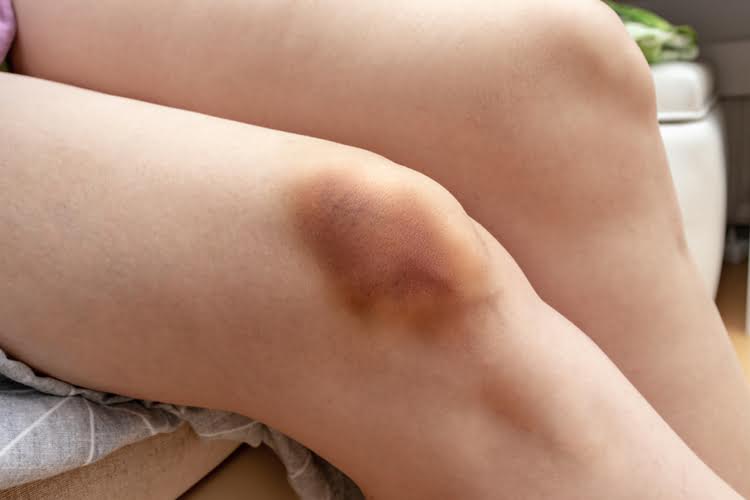Why do i get congested when i drink alcohol?
However, some people may experience allergy-like reactions after consumption. Sneezing alone is not typically a sign of alcohol intolerance, which usually involves symptoms like flushing, nausea, rapid heartbeat, or headache. If you have ever experienced nasal congestion, a runny nose, or sneezing after consuming alcohol, you are not alone. It is not uncommon for individuals to exhibit symptoms of congestion shortly after drinking alcoholic beverages. This phenomenon is known as alcohol-induced rhinitis or alcohol-induced vasodilation, and it can occur even in individuals who do not typically have allergies or sinus problems.
Is alcohol-induced sneezing a sign of an alcohol allergy?
Signs of an allergic reaction may include nausea, vomiting, hives, and itching. It is essential to recognize when one has an alcohol intolerance, as this can be a serious health concern. Symptoms of an alcohol intolerance include nausea and vomiting, diarrhea, headaches, hives, facial flushing, chest tightness or difficulty breathing. If someone experiences these symptoms after consuming even small amounts of alcohol it is important to seek medical attention immediately. Red wines, for example, tend to have higher levels of histamines than white wine or beer.
Ingredients and Allergens in Beer
Certain individuals experience digestive discomfort due to an inability to tolerate histamines or sulfites in alcoholic beverages, causing responses resembling allergic reactions. Allergic reactions to alcohol can cause symptoms such as difficulty breathing, coughing, a runny nose, or stomach upset. Dilated blood vessels can cause inflammation and swelling in the nasal passages. In some people, drinking alcohol may also trigger an allergic reaction, which can cause sneezing and other symptoms.
Ethanol or acetaldehyde sensitivity
This rhinitis develops with the overuse of over-the-counter decongestant nasal sprays or other medications. Consulting a doctor helps identify the underlying cause and provide guidance on how to manage symptoms safely. Artificial sweeteners in alcohol interfere with intestinal function, leading to loose stools and digestive discomfort. Such compounds irritate the digestive system, leading to excessive fluid secretion in the intestines, exacerbating diarrhea and heightening the risk of dehydration. Book an appointment with HeyAllergy to start your journey towards a better understanding and management of your allergies. With our telemedicine services, you can get the care you need, when you need it, without the hassle of visiting a clinic.

Signs of Alcohol Withdrawal That Might Surprise You
Histamine intolerance is a complex condition that can be caused by several different factors. It occurs when your body has difficulty metabolizing the histamines found in certain foods and drinks, such as wine or beer. If you experience sudden sneezing after consuming these beverages, it may be an indication of histamine intolerance. The key to managing histamine intolerance is to recognize which foods and drinks are high in histamine levels and avoid them. Alcohol can cause congestion because it expands blood vessels, leading to inflammation in your nasal passages.

While true alcohol allergies are uncommon, they do exist, and alcohol intolerance and reactions to ingredients in your favorite drinks are pervasive. Here’s how to spot the clues https://dev-celebridadenews.pantheonsite.io/2022/01/10/alcohol-and-panic-attacks-how-are-they-linked/ that you might not get along well with alcohol. Differences between alcohol intolerance and alcohol allergy describe the distinct ways the body reacts to alcoholic beverages.
Alcohol allergy vs. alcohol intolerance
If you find that drinking these beverages triggers an allergic reaction, then it’s important to limit your intake and switch to lower-histamine alternatives. Another helpful tip is to opt for histamine-low foods, such as fresh fruits and vegetables, or fermented products like yogurt Substance abuse or kefir. These foods can help your body break down the histamines more effectively, reducing the potential for an allergic reaction. It’s important to note that a Red Wine Allergy is not the same as an intolerance to red wine. An allergy occurs when something in the wine triggers an immune reaction, while an intolerance takes place when someone has difficulty digesting certain components of the beverage.
- Having a mild intolerance to alcohol or something else in alcoholic beverages might not require a trip to a doctor.
- Alcohol intolerance aggravates asthma symptoms by triggering airway inflammation.
- While it may create a temporary feeling of relaxation or euphoria, long-term use can lead to anxiety, depression, and addiction.
- Hives and other skin reactions typically appear soon after drinking and persist for several hours.
What are the differences between alcohol intolerance and alcohol allergy?
In this article, we’ll explore why drinking alcohol commonly leads to a stuffed up nose for so many people. More importantly, you’ll discover actionable ways to stop alcohol from inflaming nasal passages so you can avoid the dreaded stuffy nose hangover. Whether you only have the occasional glass of wine at dinner or frequently enjoy late nights out, you’re sure to learn valuable tips to nip post-drinking nasal congestion in the bud. Another possibility is that alcohol can induce an allergic reaction in some individuals. Certain components of alcoholic beverages, such as histamines and sulfites, can act as triggers for allergy-like symptoms, including sneezing. Allergic rhinitis, a common condition characterized by symptoms like sneezing, stuffy nose, and itchy eyes, can be aggravated by alcohol.
In most cases, alcohol-induced sneezing is harmless and not indicative of an underlying medical condition. However, if you consistently experience severe sneezing or other concerning symptoms, it is recommended to consult a healthcare professional. If you’re looking for a way to prevent sneezing when you drink, try making your cocktails with fresh fruit juices instead of using pre-made mixes. This will help reduce the number of histamines in your drink and make it less likely to trigger a sneeze. Quick diagnosis and appropriate treatment will free you from persistent sneezing and prevent further development of the disease and its possible complications.

The reason for these effects is usually due to high blood acetaldehyde levels. The alcohol that we consume is broken down and converted to a chemical called acetaldehyde. Problems occur if alcohol cannot be broken down properly as acetaldehyde can build up and cause adverse effects. This document has been developed by ASCIA, the peak professional body of clinical immunology/allergy specialists in Australia and New Zealand. ASCIA information is based on published literature and expert review, is not influenced by commercial organisations and is not intended to replace medical advice.
- Red wine should be consumed in moderation – no more than one glass per day and avoid eating on an empty stomach.
- You might be sensitive to sulphites if you also react to mustard and dried fruits like dried apple rings, dried pears, apricots, raisins, prunes, and figs.
- The symptoms of alcohol intolerance indicate alcohol sensitivity, and are triggered shortly after consuming alcohol.
- Headaches caused by alcohol intolerance may remind you of headaches felt during a hangover.
- Yes, certain ingredients in alcoholic beverages, such as sulfites in wine or hops in beer, can be more likely to induce sneezing in susceptible individuals.
A food and symptom diary can help you keep track of when your symptoms appear and whether they line up with certain things—such as alcohol. It is stronger after a winemaking process than it was before, making it an integral part of the finished product. In addition to raisins and dried fruits, sulfates are used as preservatives in some foods, including wines. The presence of sulfites does not always mean the wine is of a lower quality and, in fact, may be used to prevent spoilage. Alcohol-induced sneezing can occur even without having an alcohol allergy. It is best to consult a healthcare professional for a proper diagnosis if you suspect an alcohol allergy.
Generally, clear spirits like vodka, gin, and tequila have lower levels of histamines compared to aged alcohols like red wine or whiskey. Opting for clear spirits and avoiding aged beverages can reduce the risk of histamine-related allergic reactions. Alcohol can worsen your difficulty breathing through your nose, so it’s important to be mindful of how much you consume. If drinking alcohol is unavoidable, try to limit your intake of low-alcohol beverages such as beer or wine. Red wine should be consumed in moderation – no more than one glass per day and sneezing after alcohol avoid eating on an empty stomach.

